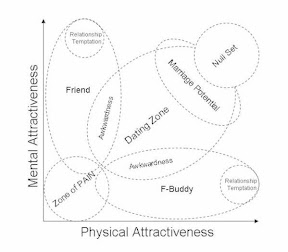john,
Your view seems awefully trapped in the present world. It echos a sentiment not so different from Francis Fukuyama, that somehow today's free economies is the end of history.
I want to respond to this point: "your worldview that are only two states a person can be - salaried worker and the entrepreneur - is flawed. salaried workers exist because there are entrepreneurs, and there would not be entrepreneurs if there is no one willing to exchange their labour for money."
Firstly, I never stated that one is either a salaried worker or an entrepreneur. I simply stated that salaried works never produce great works. Great works are almost invariably produced by men who follow their dreams.
Your version of events have entrepreneurs and workers in a symbiotic relationship. Marx would tell you exactly the opposite -- that they both exploit each other rather than benefit from each other.
Now I may be a liar, a pig, an idiot, a communist, but I am NOT a pornstar!
I mean, I am not a communist.
Back to the point. I think you've just stated that you believe the current means of labour distribution is optimal. I disagree.
I think there is far too great an opportunity cost incurred in the current system. I will take an HRM approach to this issue: I believe that the ultimate asset/value/competative advantage of a company lies in the abilities of its employees; that the higher the rate of self-actualization in the organisation, the better the operational outcome, and hence the greater the profit.
I think today's social structure does not encourage people to pursue careers that are optimal for themselves. Instead, most choose careers based on its popularity in the job market. This is reflected in the obscene amount of computer science and commerce degrees, despite the fact that few of the applicants want to be computer scientists or accountants. Far too many people are driven away from pursuing them dreams due to financial insecurity. This is a great loss of human talent, and, if you proscribe to HRM literature, a great loss of profit. This material loss, combined with the spiritual suffocation of unfulfilling careers, is enough to show that market is not the best means of appropriation.





